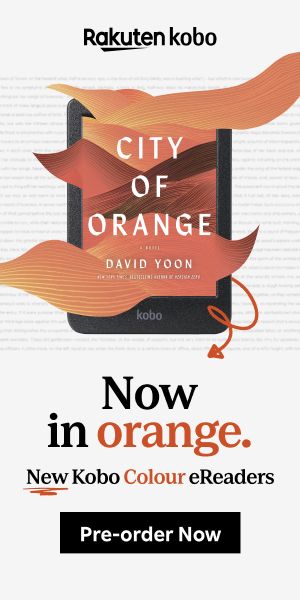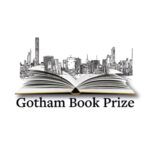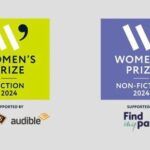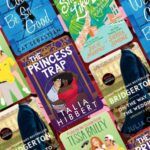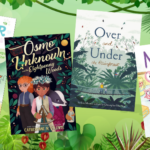
How to Start Reading (If You’ve Never Liked Reading Before)
Wanting to read more, but not knowing where to start, is such a common conundrum that there’s even a WikiHow page dedicated to reading more. Perhaps your boss asked you to read certain books to support you at your job. Maybe you like the aesthetic of giant scarves, warm beverages, and stained wood bookshelves sagging under the weight of dilapidated paperbacks. Or possibly you feel the irresistible, inherent human draw towards stories.
While a lot has been written about the ways books can make you smarter (besides the simple imparting of knowledge), the truth is that attaching a strategic goal to what’s supposed to be a relaxing activity can make it too intimidating. You don’t have to be the next Yo Yo Ma to enjoy Bach’s cello suites. Why should reading be any different?
If you want to learn how to start reading more, but have been too intimidated to try, consider trying these tips.
Get the Right Recs
If you’re trying to read more, the first thing you’ll need to do is find a book to read. This is often easier said than done, of course, especially when you consider that well over 1,000 new books are published per day. With such an overwhelming number of books, it’s easy to see how finding one you actually like to read can quickly become a daunting task. That’s why you should find a trusted person you can ask for suggestions.
Knowing whom to ask for book recommendations is a crucial skill. The right recommendation can open up a huge world of possibilities and insights. Find a friend who knows you really well (and has a diverse reading list!) and ask them to recommend something they think you’d like. Tell them about movies you like to watch, issues or topics you care about, and other ways you like to relax and unwind. If they know you love being outdoors, they may recommend John Muir’s My First Summer in the Sierra. More of a People Magazine person? Kevin Kwan’s Crazy Rich Asians could be right up your alley.
Of course, if you don’t know someone that can fill this role, you can always consult a Bibliologist.
Look for Page-Turners
If it seems books have a hard time holding your attention, find a book with short chapters or a lot of cliffhangers to keep your interest. Sassy action-thrillers like Janet Evanovich’s Stephanie Plum series cut right to the core of the plot. The Martian by Andy Weir is as hilarious as it is fast-paced and readable.
Short chapters and cliffhangers do not indicate a book of “lesser” value. They simply indicate the author knows how to keep you guessing and keep you reading. If you want to keep reading, you need to stay interested. And if you still have a hard time staying focused, you can read 1–2 chapters at a time. You’ll make progress on the book without feeling like you’re stuck on a chapter that just won’t end.
Don’t Be Afraid to Read YA
YA stands for “young adult,” or, more precisely, novels written for people between the ages of 12 and 18 years old. Despite the age range of their intended audience, anyone of any age can read YA books and enjoy them.
As Abby Hargreaves recently wrote for Book Riot, YA novels have a much broader appeal than to just teenagers. Just because they’re geared to younger readers, doesn’t mean they’re juvenile. On the contrary, many YA novels gracefully tackle serious issues, such as police brutality (Angie Thomas’s The Hate U Give), or sexuality (the queer space age retelling of the King Arthur myth, Once and Future by Amy Rose Capetta and Cori McCarthy).
YA fiction is often equally silly and serious. It tends to be shorter than adult fiction, and easier to read. For recommendations on how to start reading YA, check out this list of books.
Listen to Audiobooks
If you struggle with the sitting and focusing required to read a physical book, or don’t have the time, consider listening to audiobooks. Audiobooks are a great way to make mundane tasks, like chores or a daily commute, more enjoyable. Even better, many audiobooks are available for free through your local library through apps like Hoopla, Libby, and Overdrive.
A pro tip for finding an audiobook you like: find a narrator you like. Famous actors will often perform audiobooks. If The Handmaid’s Tale or Tom Sawyer have always intimidated you, hearing Claire Danes or Nick Offerman (AKA Parks and Recreation‘s Ron Swanson) narrate may add another layer of interest to your listening. Plus, many celebrities narrate their own memoirs. If you love Tiffany Haddish, it is more than worth it to hear her read The Last Black Unicorn.
Download Some Ebooks
If you’re constantly on your phone or tablet, but the thought of lugging around a physical book seems like too much, try an ebook. Ebooks are also widely available on a variety of different apps, and can be read on just about any device nowadays. They’ve become ubiquitous among voracious readers and for good reason: they’re addictive!
One secret to the addictive nature of ebooks: the pages are really short. Most of the time, you feel more active reading an ebook than a physical book because you turn the pages more often. Plus, if you find yourself mindlessly scrolling social media, you can easily use that time to switch over to a more entertaining ebook on the same device.
Take Advantage of Boredom
While you may think you don’t have time to read, there may be some blank edges in your day where having a book could come in handy. A daily commute on the train, doctor’s appointments, waiting for your kids to finish up soccer practice, are all opportunities to sneak in some reading. Thanks to COVID-19, you are likely more bored than ever. Why not use that extra time to squeeze in some reading?
This is where audiobooks and ebooks come in handy. While you may not be used to lugging around Anna Karenina, you likely carry around a smart phone pretty much all of the time. Having a few ebooks or audiobooks preloaded onto your phone can help keep you engaged and informed at all times.
Read the Book Version of a Movie or TV Show
The debate of books over movies has raged for as long as books have been adapted for film and I am frankly not interested in adding more to it. As a tool to start reading, however, movies and TV shows are a great place to start.
First of all, you already know you like the story, the characters, and the setting if you like the filmed adaptation of a book. Secondly, while occasionally movies surpass their source material, in general books include more details and background that movies leave out, because they have the luxury of extra time to say what they want to say.
If the thought of spoilers puts you off reading the book, at the very least you have a good jumping off point for what stories might catch your attention. For example, do you love The Hunger Games? Here’s a list of similar books for you to try.
Learn the Power of the DNF
Internet bookworms have many acronyms: TBR, AOC, the list goes on. One of the most freeing is DNF: did not finish. After being forced to stomach “classics” in our high school language arts classes, many of us carry a lot of unnecessary guilt into our adult reading lives. The idea that we must soldier on through a grueling book is drilled into our heads from an early age.
One of the true miracles of growing up is just doing whatever the heck you want. And no matter how much your partner, boss, best friend, or pushy aunt goads you to read a certain book, if you’d rather pull your fingernails off than read the book, put it down. Find something else. Life is too short to believe you hate reading because you’ve only ever read books you hate. Find one you like. It’s out there (I promise).
All of these tips are designed to help you either find a book you enjoy, or find a way to consume books that works for you. If you want to learn how to start reading, the key is this: make sure you like it. Books can be dry and dense, they can be puzzling and weird, or they can be short and silly. They can make you laugh, cry, think, dream, and feel the full range of emotions a human being experiences. The fact that you sought out an article about how to start reading more means you want to like it. So make sure you don’t lose sight of what you enjoy and what interests you. If you do that, you’ll be reading before you know it.


